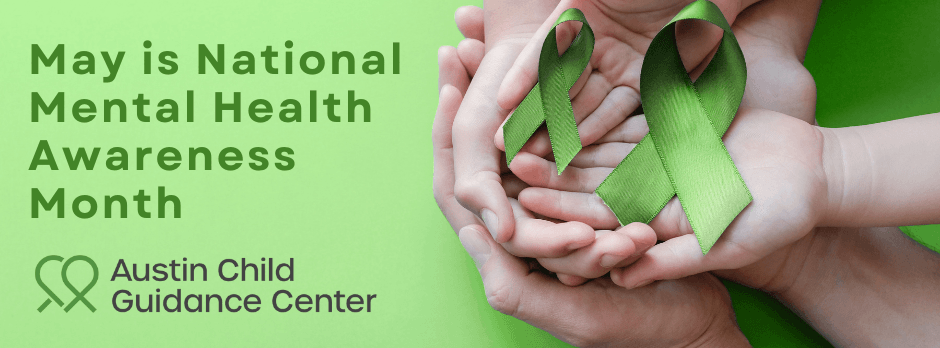
May is Mental Health Awareness Month: Tips on Seeking Mental Health Services for Your Child
Are you concerned about your child's mental health? May is Mental Health Awareness Month, and it's a good time to start thinking about how you can support your child's well-being.
As a caregiver, you play an important role in promoting your child's mental health. This includes encouraging open communication, teaching coping skills, modeling healthy behaviors, and seeking professional help when needed. Mental health can have a profound impact on your child's life, including their relationships with family and friends, academic performance, future health behaviors, and even physical health.
It's important to identify mental health issues in children early on and seek appropriate treatment. However, we understand that seeking mental health services for your child can be a difficult process. That's why we've put together some tips to help make the process a little bit easier for you:
Recognize the signs: It's essential to recognize the signs that your child may need mental health services. These signs include changes in mood, behavior, or social interactions, withdrawal from activities, and declining academic performance.
Talk to your child: Talking to your child about how they are feeling and any concerns they may have helps them feel heard and understood. It can also make them more receptive to the idea of seeking mental health services.
Ask and Advocate: You can ask for referrals from your child's doctor, school counselor, or friends and family members. As the expert on your child's normal behavior, it's important to speak up and advocate for them when you observe behaviors that deviate from their norm.
Attend appointments with your child: Your attendance can help you understand their treatment plan and support them through the process.
Be open and honest with mental health professionals: Being open and honest about your child's history, symptoms, and any concerns you may have will help mental health professionals develop an effective treatment plan.
Stay engaged: Attending appointments, following through on recommendations, and communicating with mental health professionals will not only help you be familiar with your child’s mental health treatment plan but also advocate for their needs.
Take care of yourself: Taking care of your own mental health is essential when seeking mental health services for your child. This includes getting support for yourself, practicing self-care, and seeking professional help if needed.
At Austin Child Guidance Center, we offer a weekly Mental Health Walk-In Clinic to serve families with immediate needs. Children up to the age of 17 can be seen without having to wait days or months for an appointment. Parents or guardians can schedule an appointment with or without their child to consult with a therapist about problem behavior, seek advice, and explore solutions. Children can be seen as many times as they like, but they may not be seen by the same therapist in subsequent walk-in sessions.
Remember, you are not alone on this journey. Seeking mental health services for your child is a brave and important step in supporting their well-being.

